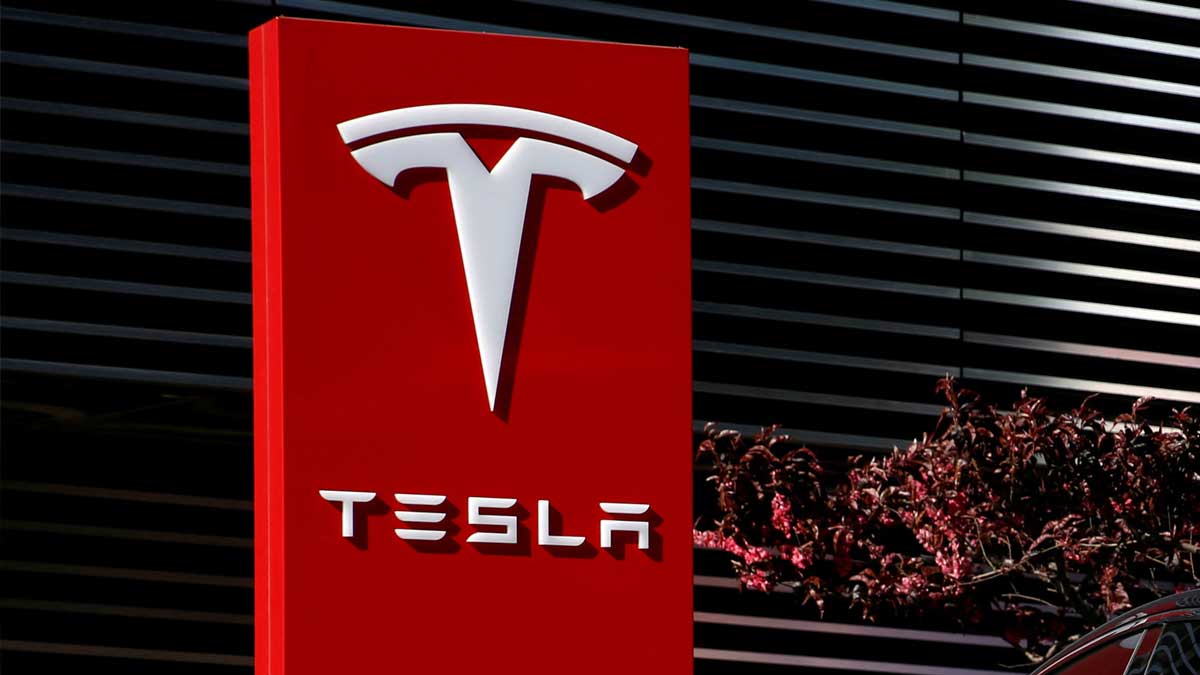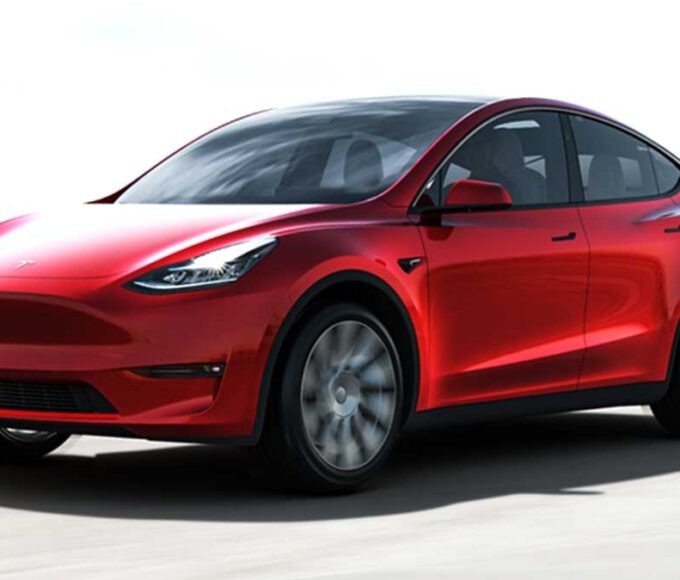- Home
- Billionaires
- Investing Newsletters
- 193CC 1000
- Article Layout 2
- Article Layout 3
- Article Layout 4
- Article Layout 5
- Article Layout 6
- Article Layout 7
- Article Layout 8
- Article Layout 9
- Article Layout 10
- Article Layout 11
- Article Layout 12
- Article Layout 13
- Article Layout 14
- Article Sidebar
- Post Format
- pages
- Archive Layouts
- Post Gallery
- Post Video Background
- Post Review
- Sponsored Post
- Leadership
- Business
- Money
- Small Business
- Innovation
- Shop
Recent Posts
Tesla Shares Up 6%, Adding $45B to Market Cap

Tesla Inc.’s stock surged by 6% as of Monday afternoon, marking a significant rise despite anticipated disappointing delivery figures for the company’s second consecutive quarter. The dramatic increase in Tesla’s share price, which reached over $211 by approximately 3:35 p.m., has added an impressive $45 billion to the company’s market capitalization.
This recent rally in Tesla’s stock comes after a notable rebound in the past week. The stock has climbed nearly 16% over the last five trading days and has seen a substantial 34% increase since its share price dipped below $140 on April 22. Analysts and investors have shown optimism about Tesla’s future prospects, even as the company braces for a decline in delivery numbers.
For the three-month period ending on June 30, analysts predict Tesla will report around 436,000 vehicle deliveries. This figure represents a 6.4% decrease compared to the same period last year, according to estimates compiled by FactSet. Despite these anticipated lower delivery numbers, there remains a positive outlook for Tesla, as noted by Wells Fargo.
In a recent note, Wells Fargo added Tesla to its list of companies with a favorable outlook for the third quarter. However, the bank remains cautious, acknowledging that it expects “disappointing fundamentals” for the company in the near term. Colin Langan, Wells Fargo’s lead analyst on Tesla, pointed out that the company is facing a slowdown in delivery growth due to decreased demand for its vehicles. Langan also noted that Tesla has limited options to stimulate growth beyond price reductions.
Elon Musk, Tesla’s CEO and the world’s richest person with an estimated net worth of $228 billion, saw a personal financial boost as a result of the stock surge. Musk, who holds approximately 12% of Tesla’s shares, saw an increase of about $7 billion in his net worth on Monday alone.
In terms of recent performance, Tesla’s first-quarter results were notably disappointing. The company reported a 48% drop in profits year-over-year, alongside a 9% decline in revenue and approximately 70,000 fewer vehicle deliveries than initially expected. This marked Tesla’s first negative quarterly delivery growth since 2020. Tesla attributed part of this decline to supply chain disruptions, including an arson attack at its Berlin factory in February.
The company is also facing intensified competition in the electric vehicle (EV) market, particularly in China. There, several competitors have reported significant gains in sales and deliveries. For instance, BYD, a prominent Chinese automaker, reported a 21% increase in sales for the second quarter. This rising competition adds pressure on Tesla as it seeks to maintain its market share and continue its growth trajectory.
Despite these challenges, Tesla’s stock performance and market valuation highlight ongoing investor confidence in the company’s long-term potential. The surge in share price reflects a broader belief in Tesla’s capacity to navigate current obstacles and continue its trajectory of innovation and growth. As the company prepares to release its delivery data, all eyes will be on whether Tesla can surpass expectations and stabilize its performance in the competitive EV market.
Recent Posts
Categories
- 193cc Digital Assets2
- 5G1
- Aerospace & Defense46
- AI37
- Arts3
- Banking & Insurance11
- Big Data3
- Billionaires449
- Boats & Planes1
- Business328
- Careers13
- Cars & Bikes76
- CEO Network1
- CFO Network17
- CHRO Network1
- CIO Network1
- Cloud10
- CMO Network18
- Commercial Real Estate7
- Consultant1
- Consumer Tech180
- CxO1
- Cybersecurity68
- Dining1
- Diversity, Equity & Inclusion4
- Education7
- Energy8
- Enterprise Tech29
- Events11
- Fintech1
- Food & Drink2
- Franchises1
- Freelance1
- Future Of Work2
- Games141
- GIG1
- Healthcare78
- Hollywood & Entertainment186
- Houses1
- Innovation42
- Investing2
- Investing Newsletters4
- Leadership65
- Lifestyle11
- Manufacturing1
- Markets20
- Media193
- Mobile phone1
- Money13
- Personal Finance2
- Policy567
- Real Estate1
- Research6
- Retail1
- Retirement1
- Small Business1
- SportsMoney33
- Style & Beauty1
- Success Income1
- Taxes2
- Travel10
- Uncategorized8
- Vices1
- Watches & Jewelry2
- world's billionaires418
Related Articles
Tesla Recalls 700,000 Vehicles Over Tire Pressure Issue
Tesla has announced its latest recall of nearly 700,000 vehicles in the...
By 193cc Agency CouncilDecember 20, 2024MicroStrategy Stock Rallies on Nasdaq 100 News
Shares of MicroStrategy surged on Monday following the announcement that the company...
By 193cc Agency CouncilDecember 16, 2024Stanley Recalls Millions of Mugs After Burn Injuries
In a significant recall, Stanley, the well-known brand behind popular stainless steel...
By 193cc Agency CouncilDecember 12, 2024Adobe Shares Drop 12% After Lowering Revenue Outlook
Shares of Adobe experienced a significant drop of over 12% on Thursday,...
By 193cc Agency CouncilDecember 12, 2024















Leave a comment